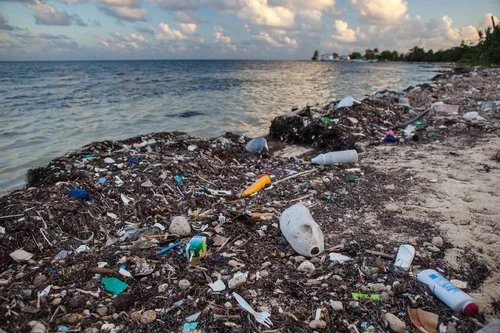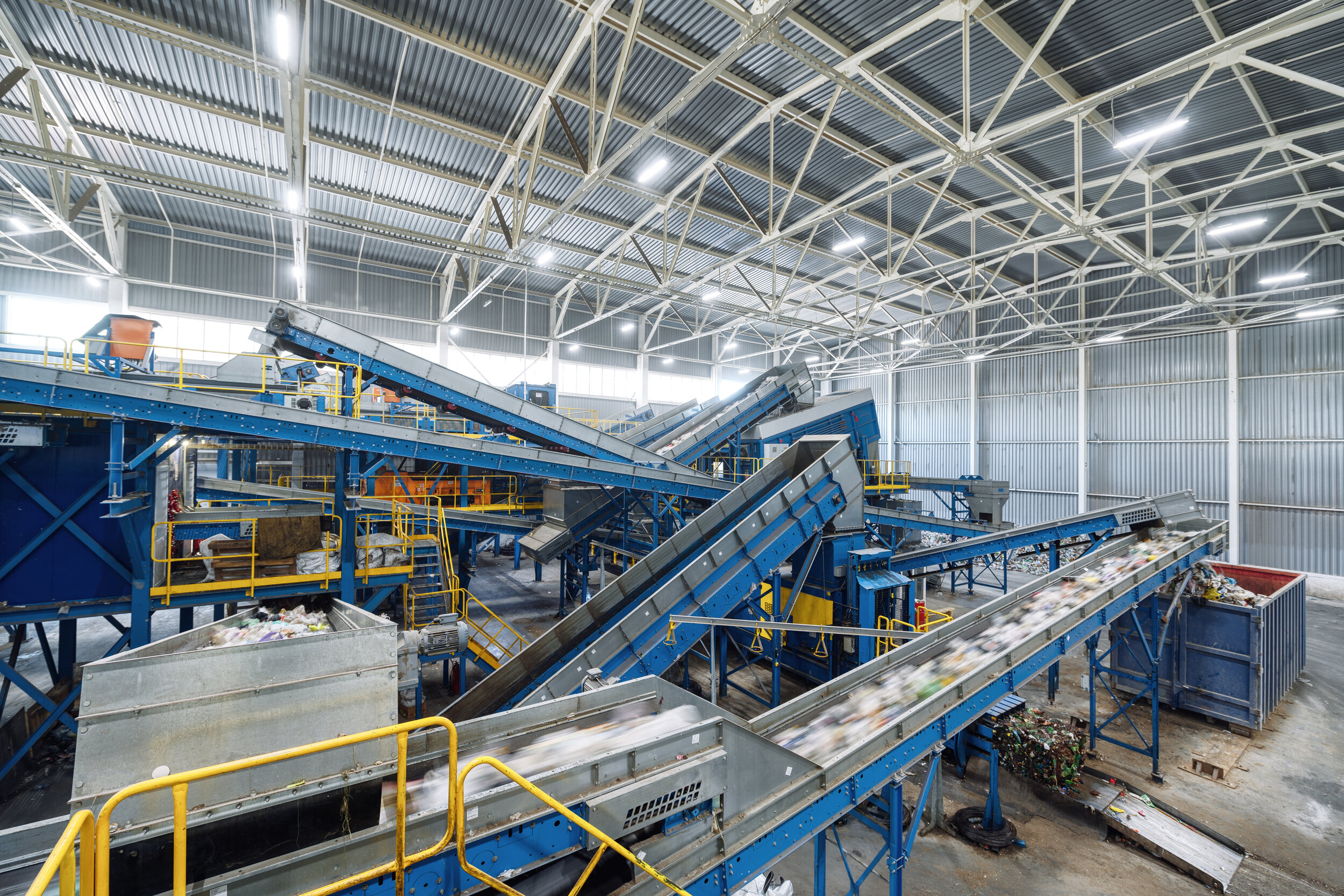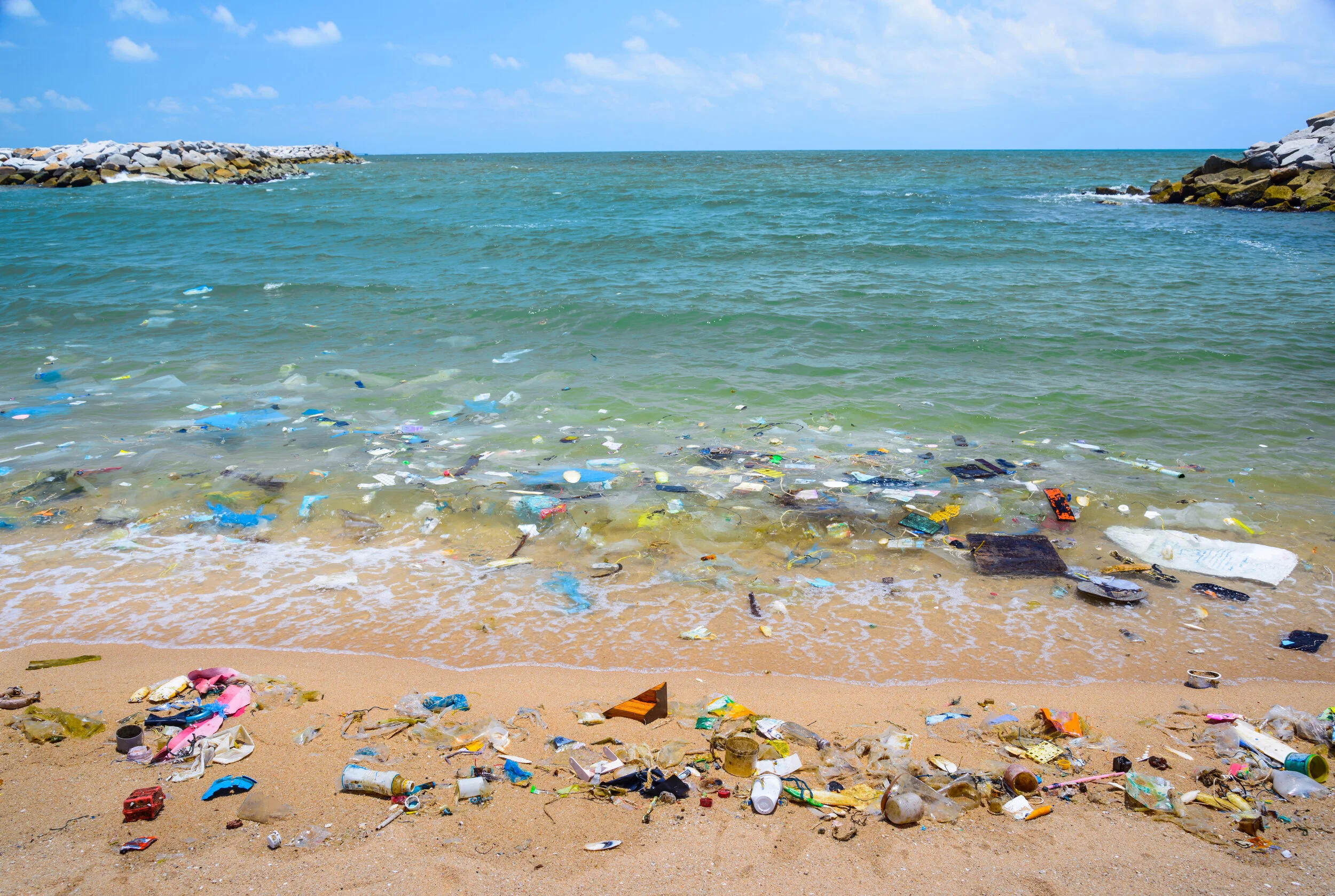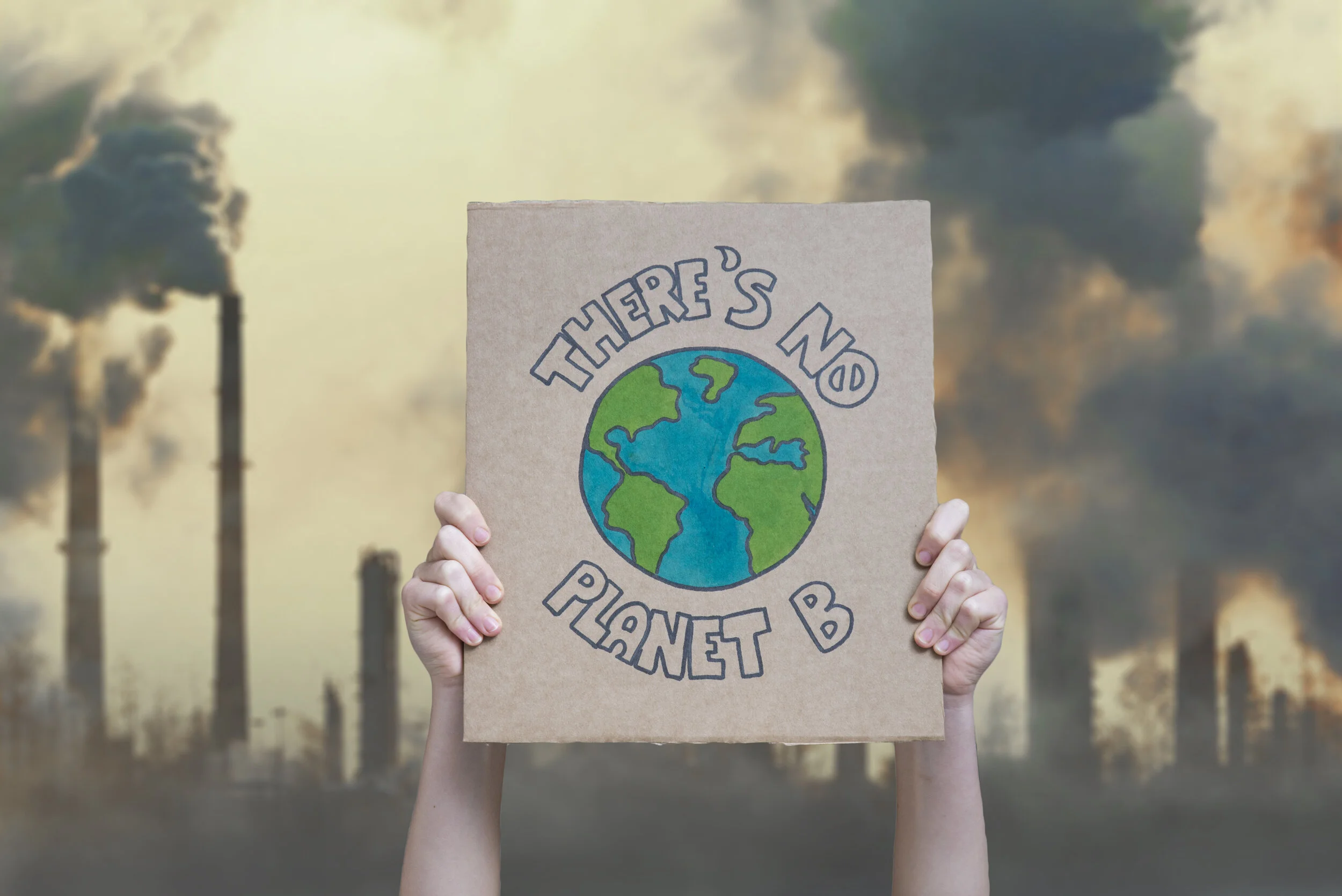plastics and petrochemicals
Even major plastics users are asking petrochemical producers to reduce plastic production
As You Sow is engaging petrochemical companies on the risks of production overcapacity for polymers used for single use plastic, the need to plan for reductions in demand for these materials, and responsibly switching their operations from fossil-fuel based virgin polymer to recycled polymer production.
Nearly all plastics are made from fossil-fuel based petrochemicals. Responsibility for the global plastic pollution crisis has focused to date mostly on consumer goods companies’ use of non-recyclable and mismanaged single-use plastics. Yet brands’ use of plastic has been enabled by artificially cheap resin prices driven by enormous subsidies to oil and gas companies.[1]
To hedge against shrinking demand from the power and transportation sectors, oil and gas companies are investing heavily in boosting petrochemical operations. Petrochemicals account for 14% of total oil use; the International Energy Agency predicts they will be the largest driver of net oil demand growth through 2030, suggesting the significant role the industry expects plastics will play in coming years. The World Economic Forum predicts plastic production will double in the next 20 years. The plastics industry has reportedly invested $164 billion on more than 250 new facilities or expansion projects in the U.S. alone.[2]
The Plastic Pollution Crisis
However, consumer, corporate, and policy actions to counter the severe environmental and societal impacts caused by the plastic pollution crisis threaten to slow or reverse these growth projections, resulting in reduced demand for single use plastics polymers, and potential stranded assets for the industry.
Plastic pollution may be nearing an irreversible tipping point, according to two recent science-based reports.[3],[4] The current plastic lifecycle imposes costs on the environment, climate, and human health that are in total at least ten times higher than the market price of plastics.[5] Plastic waste generation continues to increase despite enhanced consumer, corporate and regulatory attention.
The plastic waste crisis continues unabated. In 2021, the world generated 139 million metric tons of single-use plastic waste, 6 million tons more than in 2019. At the heart of the plastic pollution problem are single-use plastics, which make up the largest component of the nearly 11 million metric tons of plastics that flow into the oceans annually.
Unilever has stated that the “artificially low price of virgin plastics inhibits” the company’s ability to increase use of recycled content, “disrupting the business model to collect and process plastic and reducing our ability to innovate. Should virgin plastic production continue unchecked, we fundamentally will not be able to deliver the vision of this instrument [global plastics treaty].”[6]
Many widely respected organizations have stated that the current rate of expansion of virgin plastic production is unsustainable and that improved waste management and recycling policies will not be sufficient to stem the global tide wave of plastic waste and that absolute demand reductions are necessary. Many petrochemical companies maintain they will secure healthy growth of sales in resins used for single-use plastics, but there are increasing signs that demand will slow or be reversed. They include:
Major economies are beginning to limit plastic packaging use. Scores of countries have enacted legislation that bans or restricts some single use plastic products (e.g. plates, cups, straws, packaging). 170 countries have pledged to "significantly reduce" the use of plastics by 2030.[7] Landmark California legislation SB 54 requires consumer brands to cut plastic packaging use 25% over the next decade in the world’s fifth largest economy.
ReShaping Plastics, a 2022 report commissioned by plastics trade industry group Plastics Europe, concluded that for Europe to reduce 80% of plastic waste by 2050, it is environmentally beneficial to reduce 38% of projected plastic packaging demand by 2050 through elimination actions and development of reuse models.
Business Coalition for a Global Plastics Treaty, a group of major plastic brand users including Nestle, Coca-Cola, PepsiCo, Unilever, and Walmart says its top priority is reduction of plastic production and use through a circular economy approach focusing on plastics that have high-leakage rates, are short-lived, and/or made using fossil-based virgin resources. Petrochemical manufacturer Borealis is also a signatory.[8]
Breaking the Plastic Wave, published by Pew Trusts (2020) and endorsed by PepsiCo, Unilever and other major users of plastics packaging, concluded that to achieve an 80% reduction in plastic ocean waste, cuts in growth in plastic production and consumption are needed to reduce one-third of plastic waste generation by 2040. The report called on resin makers to reduce investment now in virgin plastic production plants, which it said are likely to become stranded assets.
A 2022 OECD report, Global Plastics Outlook Policy Scenarios to 2060, published a detailed scenario that could reduce plastics use by more than 30% over next 10 years through increasing plastics production taxes as a way to eliminate most plastic waste by 2060.[9] The United Kingdom already charges a $236 per ton tax on plastic that does not contain at least 30% recycled materials.
A drastic reduction in unnecessary, avoidable, and problematic plastic is crucial to addressing the global pollution crisis, according to a 2021 assessment by the UN Environment Program, calling for immediate reduction of plastics and transformation across the plastic value chain.[10]
A National Academy of Sciences report (2021) calls for a national strategy to reduce ocean plastic through reducing production of plastics that are not recyclable or reusable, and establishing a cap on virgin plastic production. [11]
In light of these fast-moving developments, investors need to examine ask whether the high demand growth assumptions for plastics and other petroleum-based products are realistic. In a world awash with plastic waste, facing a continued climate crisis, and seeking environmental justice and equity, the proposed expansion of plastic production raises red flags for investors and requires enhanced scrutiny.
As You Sow Engages the Petrochemical Sector
Given the mounting evidence of the need to plan for reduced production of resins used for single use plastics, As You Sow has engaged in dialogues and filed shareholder proposals with major petrochemical companies identified as sources of polymers that end up as single-use plastic applications.
In 2021, The Plastic Waste Makers Index identified for the first time major petrochemical companies whose plastic resins and polymers are used specifically for single use plastic products and estimated how much plastic waste resulted from that production. ExxonMobil ranked first with 5.9 million metric tons of waste generated, Dow Inc. ranked 2nd; Phillips 66 23rd; and Chevron 27th and Westlake Chemical 36th. As a result, we began to engage these publicly traded companies in dialogue.
We filed shareholder proposals in 2022 with ExxonMobil and Phillips 66. As noted above, leading institutions have concluded that reduction in plastic production is a necessary component to drastically reduce plastic pollution as well as phasing out use of fossil-fuel-based virgin polymers. As a result, our proposals ask these companies to model how likely reductions in plastic demand would impact future business, and to determine if planned expansions may be unnecessary and could lead to stranded assets. We also ask for scrutiny of the safety and efficacy of chemical recycling technologies, touted by petrochemical companies as a major part of the solution to plastic waste.
The Breaking the Plastic Wave study, cited above, leverages multiple solutions like recycling and product substitution, but the most significant action is a one-third absolute demand reduction of virgin single-use plastics through elimination, reuse, and circular business models. Our proposals ask companies to use that reduction scenario to study the impact on future production.
Companies must also transition away from fossil fuels and toward using post-consumer plastic waste as feedstock. However, there are numerous concerns with chemical recycling technologies planned for this transition. Our proposals also ask for transparency around the safety and efficacy of these processes.
We had impressive first year votes in 2022 at Phillips 66 (50.4%) and ExxonMobil (37%). For 2023, we are again challenging ExxonMobil and Phillips 66 to study the impactof expected reduction of plastic demand on their business operations, and adding new filings with Chevron, Dow, and Westlake Chemical. We are also engaging several European petrochemical companies in dialogue including Eni S.p.A., LyondellBasell Industries N.V. , Repsol S.A., Royal Dutch Shell plc, and TotalEnergies SE.
[1] https://e360.yale.edu/digest/fossil-fuels-received-5-9-trillion-in-subsidies-in-2020-report-finds#:~:text=Fossil%20Fuels%20Received%20%245.9%20Trillion%20In%20Subsidies%20in%202020%2C%20Report%20Finds,-An%20open%2Dpit&text=Coal%2C%20oil%2C%20and%20natural%20gas,8%20percent%20of%20the%20total.
[2] https://www.pewtrusts.org/-/media/assets/2020/07/breakingtheplasticwave_report.pdf
[3] https://scitechdaily.com/global-plastic-pollution-may-be-nearing-an-irreversible-tipping-point
[4] https://scitechdaily.com/earths-safe-planetary-boundary-for-pollutants-including-plastics-exceeded
[5] https://wwf.panda.org/wwf_news/?3507866/These-costs-for-plastic-produced-in-2040-will-rise-to-US71-trillion-unless-urgent-action-is-taken
[6] https://www.youtube.com/watch?v=4BvvjetSgC4
[7] https://www.weforum.org/agenda/2020/10/canada-bans-single-use-plastics/
[8] https://www.businessforplasticstreaty.org/
[9] https://www.oecd.org/publications/global-plastics-outlook-aa1edf33-en.htm



















